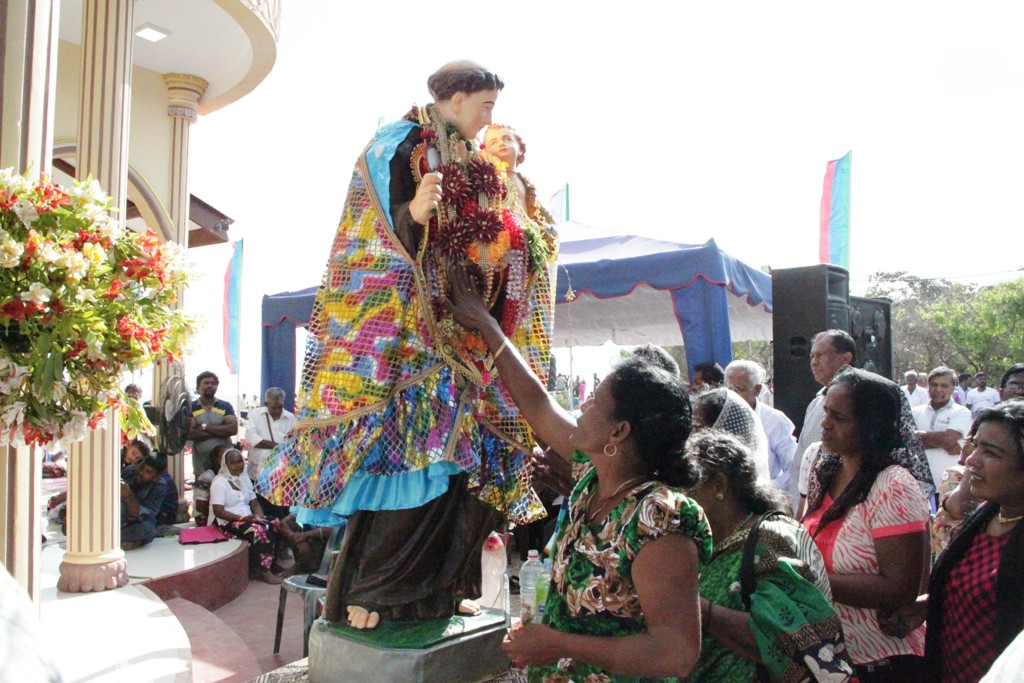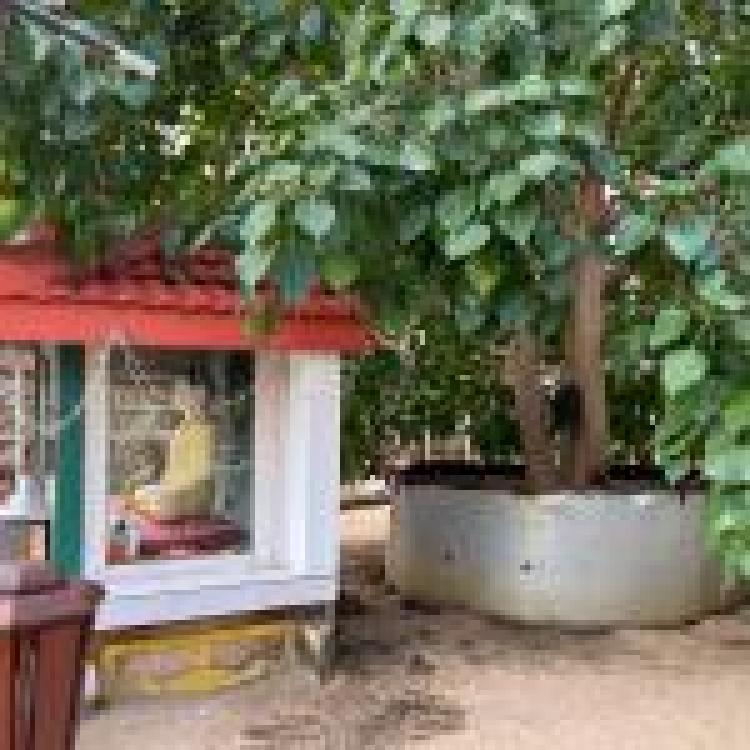A devotee prays at the site in 2017.
An islet off the coast of Jaffna will be host to up to 8,000 people from Tamil Nadu and across the island next month, as officials began preparations for the annual festival of St. Anthony's Church in Katchatheevu.
A preliminary meeting was held at the Jaffna District Secretariat on January 23, as local officials met with regional police and military commanders to agree a total of 4,000 devotees from India and another 4,000 from the island would be permitted to travel to Katchatheevu next month.
In addition to the decision on the number of participants, crucial aspects such as sanitary procedures, transportation, security, food, shelter, and drinking water facilities for the devotees during the festival were also discussed. The event is scheduled to take place on 23 and 24 of February.
Katchatheevu, a 163-acre islet, holds significant religious importance for Tamil Catholics, with the St. Anthony's Shrine dedicated to Anthony of Padua, the patron saint of many fishing communities. The annual feast attracts Catholics from around the world, making it a notable pilgrimage site.
However, Katchatheevu has also been a source of political contention. Tamil Nadu politicians have advocated for the return of sovereignty over the islet to India to address ongoing issues of Tamil Nadu fishermen being arrested by Sri Lankan authorities for alleged poaching in Sri Lankan territorial waters.
Read more: Killings after Katchatheevu
In recent developments, concerns have arisen over the installation of a Buddha statue by Buddhist monks on the islet, positioned approximately 500 meters from the historic St. Anthony's Shrine. The statue, justified as a place of worship for naval detachments stationed on Katchatheevu, has sparked fears among locals that it could be a precursor to future Buddhist pilgrimages and the possibility of Sinhala colonisation on the islet. Already, Buddhist shrines are being erected across the Tamil homeland.
In 2017, in the aftermath of the navy shooting a Tamil Nadu fisherman, their communities chose to boycott the festival.


